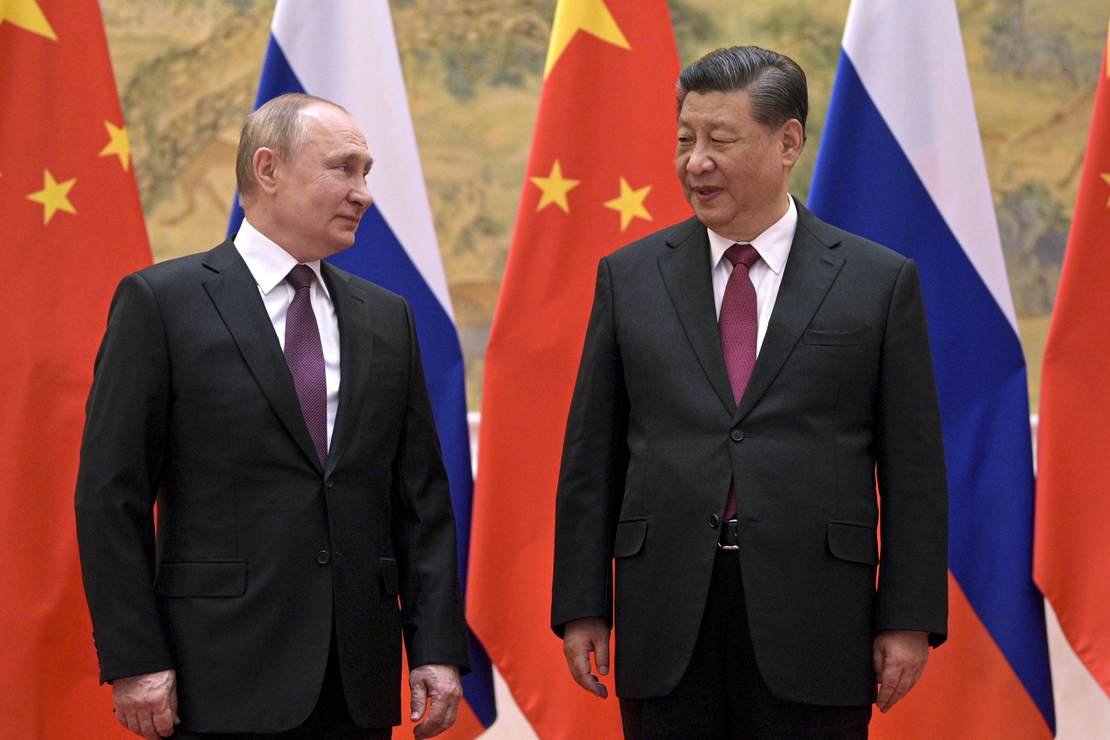
An eyebrow-raiser that circulated on social media this weekend, partly because of its provenance and partly because it’s one of the rosier outlooks for the Pax Americana that you’re likely to read this year. The author, Hu Wei, is the head of a think tank in Shanghai. That’s not to say that he speaks for the Chinese government, of course, but since his analysis wasn’t suppressed, it implies that his advice is within the Chinese government’s Overton window about how to proceed on Ukraine.
A tantalizing mystery about Russia’s war is what the Chinese knew of it in advance. They seem to have understood that something was coming, which is why they asked Putin to wait until after the Olympics before attacking. But they may not have understood the extent of that something:
Reports about Xi having been aware of a “special operation” but not about a total war. Xi feels that Putin wasn’t honest. Generally there isn’t much optimism about the idea of China coming to assist Russia.
— Michael Weiss 🌻🇺🇸🇮🇪 (@michaeldweiss) March 14, 2022
If it’s true that Xi was caught off-guard by the scale of Russia’s operation, there must be high anxiety within the Chinese government at the moment about what else their intelligence services don’t know.
Hu’s analysis claims that the Russian invasion was an “irreversible mistake” by Putin, that Putin’s grip on power in Russia may be slipping, that American leadership in the west is rebounding, and most importantly that Putin “needs to be cut off as soon as possible” from China, which should do what it can to broker peace. The strategic gamble for China here is whether Russia’s folly will embolden the west, eventually leading it to strengthen its hand in the Far East in order to contain China, or whether a major war in Ukraine will force the U.S. and EU to refocus their attention on Europe, leaving China free in the east to extend its sphere of influence. Will Putin’s humiliation unite liberal democracies, leading to a muscular new western bloc committed to higher defense spending? If so, China should ditch Putin and try to rebuild relations with America and Europe. Or will a newly aggressive Russia preoccupy America and Europe and possibly even drag them into war? If so, China should support Putin’s effort in order to keep NATO distracted.
Hu thinks the answer lies behind door number one. The west comes out stronger here, Russia comes out much weaker if not broken, and therefore it’s obvious which side China should align with.
China will become more isolated under the established framework. For the above reasons, if China does not take proactive measures to respond, it will encounter further containment from the US and the West. Once Putin falls, the U.S. will no longer face two strategic competitors but only have to lock China in strategic containment. Europe will further cut itself off from China; Japan will become the anti-China vanguard; South Korea will further fall to the U.S.; Taiwan will join the anti-China chorus, and the rest of the world will have to choose sides under herd mentality. China will not only be militarily encircled by the U.S., NATO, the QUAD, and AUKUS, but also be challenged by Western values and systems…
China should achieve the greatest possible strategic breakthrough and not be further isolated by the West. Cutting off from Putin and giving up neutrality will help build China’s international image and ease its relations with the U.S. and the West. Though difficult and requiring great wisdom, it is the best option for the future. The view that a geopolitical tussle in Europe triggered by the war in Ukraine will significantly delay the U.S. strategic shift from Europe to the Indo-Pacific region cannot be treated with excessive optimism. There are already voices in the U.S. that Europe is important, but China is more so, and the primary goal of the U.S. is to contain China from becoming the dominant power in the Indo-Pacific region. Under such circumstances, China’s top priority is to make appropriate strategic adjustments accordingly, to change the hostile American attitudes towards China, and to save itself from isolation. The bottom line is to prevent the U.S. and the West from imposing joint sanctions on China.
There’s an added benefit to Hu’s strategy. The weaker Russia becomes, the more influence China will have over whatever remains of Russian power after the war ends. Moscow will depend heavily on Beijing for trade. To the extent China believed before that the Russian military posed any conventional threat to its own forces, that myth will also have evaporated. Russia is headed towards becoming a client state of China, in other words, to the extent that any country with thousands of nuclear weapons can be a client of another. But which way does that point in Ukraine? Should China support Russia’s war in hopes that the conflict will bleed both sides dry, diminishing all of China’s rivals simultaneously? Or should it side with the west in the name of avoiding western sanctions, secure in the knowledge that Russia will be far weaker when this is over no matter what happens on the battlefield?
U.S. sources are whispering to the Financial Times this afternoon that China seems poised to choose … poorly:
The US has told allies that China signalled its willingness to provide military assistance to Russia to support its invasion of Ukraine, according to officials familiar with American diplomatic cables on the exchange…
A senior US defence official declined to say if China had provided military support after the Russian request, but said the Pentagon was watching the situation “very, very closely”.
READ RELATED: Carnage on smart motorway: Crash shows hazards of the ‘death-trap’ roads
“If China does choose to materially support Russia in this war, there will likely be consequences for China,” the defence official said.
China may be gambling that the western appetite for punishing Beijing if it sends military aid to Moscow will be weak at a moment of high inflation and sky-high gas prices. Western consumers can stand only so much pain; the U.S. and EU won’t open another front of global economic warfare when they’ve already gone nuclear with Russia via sanctions.
But here’s the question: Is China in a position to risk that at the moment? They’re hurting economically already:
Only a year ago Chinese stocks in the U.S. were enjoying an unprecedented boom. Now they’re mired in a 72% plunge within spitting distance of the Nasdaq’s 78% peak-to-trough slump during early 2000s dot-com bust. 3/5https://t.co/5MmdhoBaIm via @frostyhk pic.twitter.com/pZcUlelmls
— Rebecca Choong Wilkins 钟碧琪 (@RChoongWilkins) March 14, 2022
And they’re on the brink of a long-delayed COVID catastrophe if their lockdown strategy can’t contain the new Omicron outbreak:
Around 15 million over-80s in mainland China are still unvaccinated. An astonishing number https://t.co/T04pN7m6nT
— John Burn-Murdoch (@jburnmurdoch) March 14, 2022
Putin also believed that the west wouldn’t dare wage economic war on him for attacking Ukraine by freezing his currency reserves or isolating Russia’s central bank. How’s that working out for him? Does China want to roll the dice that it won’t be hit surprisingly hard too at a moment when the U.S. and EU are in a mood to de-globalize?
When China and Russia announced their “no limits” partnership against the west just six weeks ago, Beijing hoped that the alliance would be a force multiplier that gained each of them a sphere of influence at the expense of the U.S. Suddenly, to its horror, China is learning that Russia is a paper tiger not just economically but militarily. The partnership is worth nothing — essentially what the ruble is worth — apart from ensuring Chinese access to Russian wheat and oil. And since Russia has few other global clients for those commodities anymore, they’d have to sell to China even if Beijing threw in with the west here.
Jake Sullivan is meeting today in Rome with a Chinese foreign policy advisor to lobby him on not extending the war by supplying Russia with weapons but instead to help end it by brokering peace. No country has as much influence over Russia at the moment as China does. If they can midwife a ceasefire that somehow isn’t humiliating to one side or the other — good luck with that — China will get a boost in global prestige and earn back some good relations with the west. Interestingly, an advisor to the Chinese government called for doing exactly that in an op-ed in the Times yesterday. Stay tuned.
Reports that Putin asking Xi for military help. To do so means China would open itself to substantial sanctions and make itself a pariah; to refuse would keep open the possibility of at least selective cooperation with US and West. Defining moment for Xi, China, and 21st century.
— Richard N. Haass (@RichardHaass) March 13, 2022
Source:






